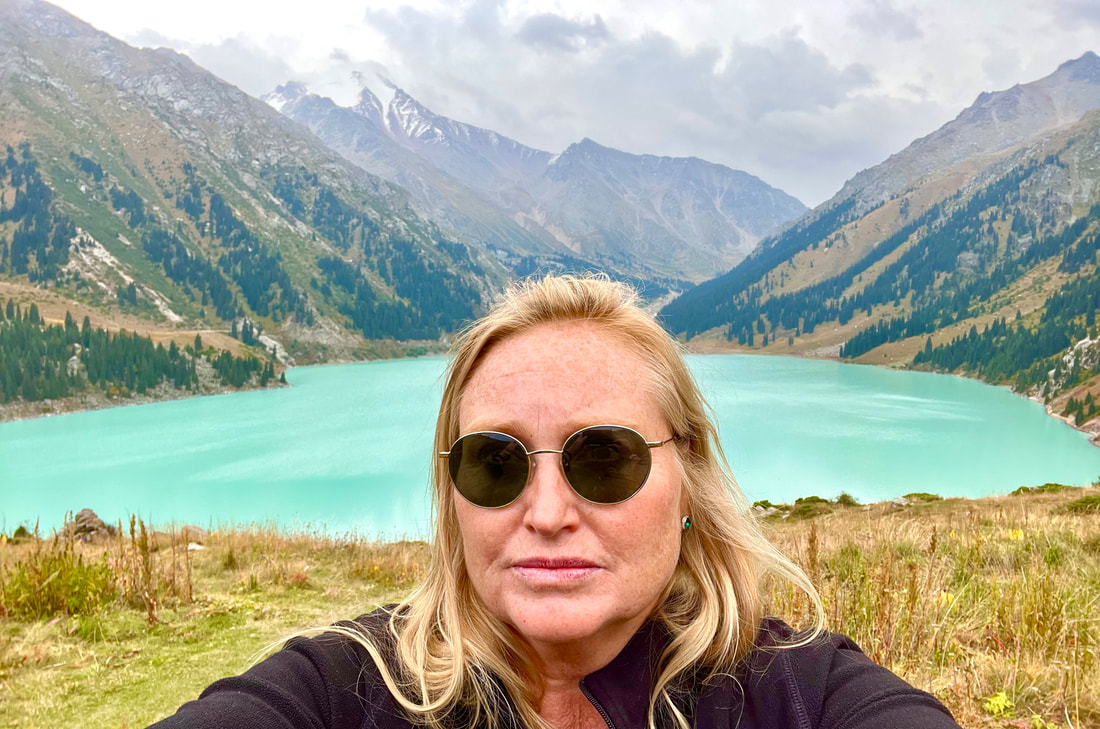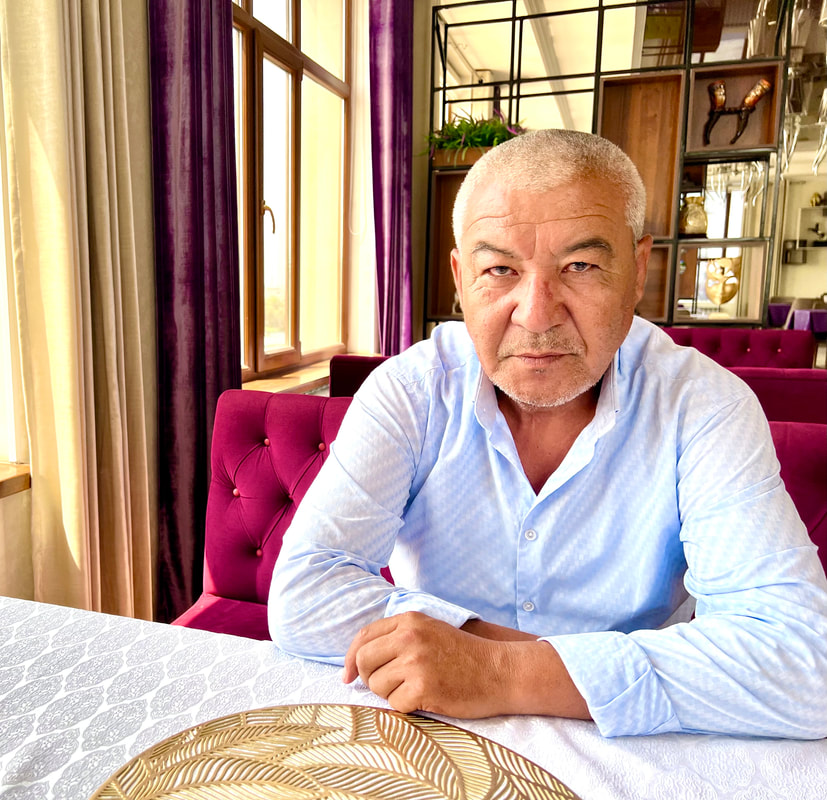|
ZHANAOZEN, KAZAKHSTAN: Nurlyek Nurgaliyev may be one of Kazakhstan’s most famous activists—he survived a police shooting during the 2011 Zhanaozen massacre. But he was not among those who started the January protests that spread across this country, resulting in 238 deaths and more than 10,000 people detained by police.
“They were just usual guys who started it,” he said in his deep voice, the result of the bullet that pierced his vocal chords and circled his heart for a month before doctors were able to extract it. There was a touch of envy in that bass voice. He had been protesting, getting arrested, and imprisoned over rising gas prices in Zhanaozen for years. This had been his issue. He’d even had a meeting with the regional mayor a year ago, he said, where he advocated the price should be no more than 50 Tenge “because we are literally sitting on the gas.” Nurgaliyev drives a water truck for the oil companies but he is also an activist who is detained on average seven times a year. In the past two years, he has been imprisoned three times for his protests on the gas situation. The first time he received a 10-day administrative sentence. The second time it was 15 days and the third time was 20 days, according to court papers he showed me. But on Jan. 1, several local guys—not the usual activists—made a video complaining that gas prices had doubled in Zhanaozen, from 60 Tenge a liter to 120 Tenge a liter, and announced they were going to have a “meeting”—the English word used in Kazakhstan to mean protest. The men posted the video on YouTube and WhatsApp, which is where Nurgaliyev saw it. So at 9 a.m. on Jan. 2, Nurgaliyev showed up at the city roundabout in front of the regional mayor’s office. The crowds swelled throughout the day and closed the roads. Several yurts were erected. He and other protesters characterized the protests that went on for six days as peaceful. There were a couple of police cars the first two days, but the officers just watched and then they were gone, he said. “We started wondering why they were gone. It was unusual. Normally they detain us,” he said. Zhanaozen is a dusty, desert town in western Kazakhstan about 90 miles from the Caspian Sea. Home to 150,000 residents, Zhanaozen (pronounced JA-NA-OO-ZEN) was mostly known for its rich oil fields and the oil workers' strike in 2011 that turned violent when police started shooting. The official death toll is 15, but protesters and their families insist that the real total is about 100. Nurgliyev and others say there are no independent media in Zhanaozen. News of the protest spread through the country via social media by ordinary citizens and bloggers who posted photos and videos online. On Jan. 3, Saniya Toiken, a reporter from Azattyq—the Kazakhstan website of Radio Free Europe and Radio Liberty —arrived in Zhanaozen. Those videos show people bundled up in winter coats huddled together as they listened to speakers standing on a small platform near the town’s sculpture of a black snow leopard with golden wings. In the background is a building with a three-story-high mural of the famous Kazakh writer Abai with the words “Keep your intelligence, courage and head together and then you will be different from the crowd.” Each day the crowds swelled and each night a group of young men wearing covid masks showed up trying to provoke violence. Nurgaliyev said the old men told them to go away. “I was surprised by how organized the protest was, how quiet and polite people were,” he said. Speakers at the protest were provided a microphone by the mayor, he pointed out. As the protest continued, a negotiation ensued between the government and protesters. Nurgaliyev said he was one of four protesters at this negotiation table. The protesters' requirement was that no one would be questioned or detained by police for their participation; no one would be prosecuted; gas workers who left their jobs to protest wouldn’t lose their jobs and would still be paid. The government and the gas company met the demands and the protest ended January 8 about 2 p.m. "I wanted people to show up for protests for so long," he said. "We couldn't get people to go. Now I'm glad the January protests happened." Comments are closed.
|
Fulbright in Central AsiaFrom March, 2022 to January of 2023, I was a Fulbright Scholar with the U.S. State Department in post-Soviet Central Asia. My previous Fulbright was in Ukraine. For the past six years, I have reported on journalists from post-Soviet countries who have experienced retaliation for reporting the truth. Archives
January 2023
|


 RSS Feed
RSS Feed
